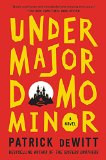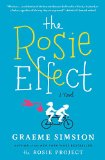Summary | Excerpt | Reviews | Beyond the book | Read-Alikes | Genres & Themes | Author Bio

Quicksand by Steve Toltz could not be more appropriately named. The main character, Aldo Benjamin, is a man quickly approaching middle age who has not been able to escape sticky situations for much of his life. An abundance of bad luck and bad timing has propelled him into desperate financial, social, and even legal predicaments. The story begins when Aldo and his lifelong friend Liam are at a bar after Liam has helped Aldo out of a jam, yet again. What follows is a tale of Aldo's life, his bad luck, and the role his close friends have played in both, told mostly through a series of flashbacks. The novel is about Aldo's loyal relationships, and standing up in the face of your fears. And it's funny about it all, too.
It's not that Aldo is drawn to precarious circumstances - he is plain old unlucky. At one point, he captures himself perfectly in a haiku composed as part of a drinking game: "My spirit animal/A dog with its head/In a bucket." For starters, the poem is apropos because it's not actually a haiku. Traditionally, haiku have 3 lines of free verse with alternating lines of syllables: 5 in the first line, 7 in the second, and back to 5 for the last line. Aldo's poem has, instead, 6 syllables in the first line, followed by 5 and then 4. It speaks to his inability to walk in line like everybody else, to follow any sort of cookie cutter life. Further, dogs generally enjoy a reputation as amiable creatures, but this one has the unfortunate handicap of a bucket on its head, perhaps limiting its ability to fully enjoy its dog-ness, like the poor pup we've all seen, sporting that lampshade collar which makes even the easiest task onerous.
Aldo seems to have similar limits. He doesn't mean to bumble through life hurting others or himself - physically or emotionally. But there is something there - some version of his own lampshade collar - that becomes a sort of handicap, limiting his ability to have a normal life. We learn that Aldo, himself, thinks his life's handicap is that he is immortal. He has escaped certain death on a few occasions, and his many suicide attempts have been thwarted by strange circumstances. His comic voice, in addition to the fact that he is generally a pretty nice guy, immediately makes his character likeable.
Aldo drags his friends into his quagmire, and they never fail to help him as best they can. Principal to his life are his best friend Liam, who is a somewhat reluctant police officer (though convenient for Aldo's copious run ins with the law), and his ex-wife Stella, who remains his constant and unfortunate love. Both Liam and Stella have moments when they throw up their hands and say, "Enough!", but they both come back to bail Aldo out - they each provide an outstretched hand to Aldo, who is drowning in the quicksand.
But this is not a one-way street. Everyone who surrounds Aldo is an artist, save for Aldo himself. And despite his protest that he is "nobody's muse", he is, in fact, everyone's muse. He provides artistic fodder for Liam's writing, Stella's music, and a host of artists at the artist colony where they all, at one point, reside.
The novel has a timeline that is sometimes difficult to follow because it jumps back and forth in time, as well as switches between Aldo and Liam's points of view. It also changes formats from straight narration, to a transcription of a police interview, to a manuscript of Liam's book, to a defense monologue from a court trial. All of these are dappled with Aldo's distracting and sometimes endless - though thoroughly entertaining and character developing - rants. But the comedic way Toltz navigates some pretty serious subjects (rape, murder, death, prostitution, and suicide to name a few), carries the reader through the unsteady timeline. To be clear, Toltz isn't making light of these subjects. But his humor does allow for some kind of literary slapstick, which lightens the read.
Despite his sad life, Aldo's quirky spirit and the loyalty of his friends make Quicksand an enjoyable read. All in all, Aldo's escapades illuminate a deep sense of friendship, and also explore what staring down your own mortality is all about.
![]() This review was originally published in The BookBrowse Review in October 2015, and has been updated for the
April 2016 edition.
Click here to go to this issue.
This review was originally published in The BookBrowse Review in October 2015, and has been updated for the
April 2016 edition.
Click here to go to this issue.

If you liked Quicksand, try these:

by Patrick deWitt
Published 2016
A love story, an adventure story, a fable without a moral, and an ink-black comedy of manners, Undermajordomo Minor is Patrick deWitt's long-awaited follow-up to the internationally bestselling and critically acclaimed novel The Sisters Brothers.

by Graeme Simsion
Published 2015
The highly anticipated sequel to the New York Times bestselling novel The Rosie Project, starring the same extraordinary couple now living in New York and unexpectedly expecting their first child. Get ready to fall in love all over again.
Your guide toexceptional books
BookBrowse seeks out and recommends the best in contemporary fiction and nonfiction—books that not only engage and entertain but also deepen our understanding of ourselves and the world around us.